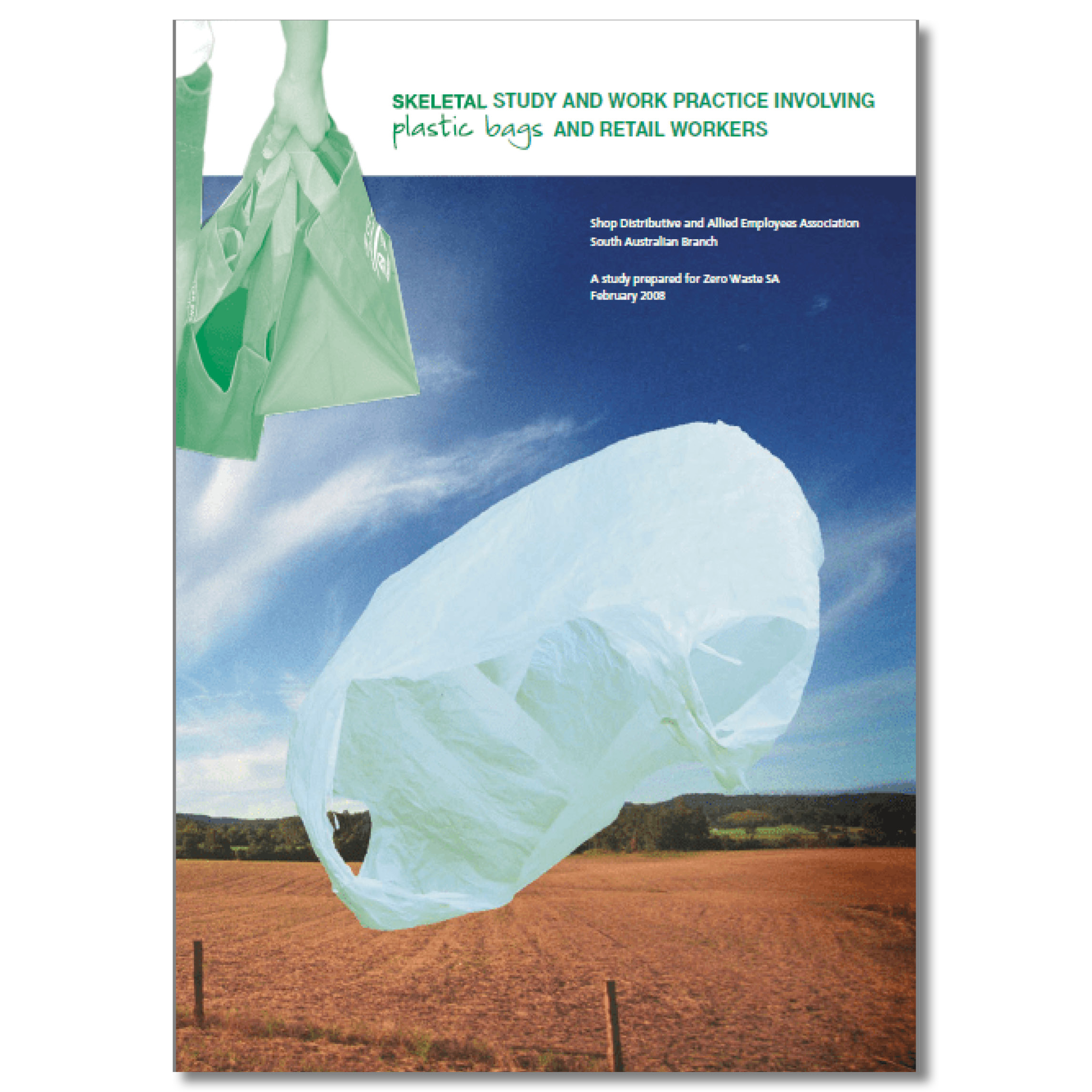
- Research
SDA Work practices – plastic bags study (2008)
The indicative study coordinated by the Shop Distributive and Allied Employees Association, commissioned by Zero Waste SA and detailed in this report, examined the potential impacts of a ban on the use of high density polyethylene (HDPE) single-use plastic shopping bags on employees and their worksites within the retail sector.
The present system, with a mix of plastic bags, green bags and others, is efficient, relatively safe and convenient to all parties. However, plastic bags are a pollutant and it is desirable to remove them, though there will be many imposts.
The study used three forms of investigation: literature search, a survey of members and a workplace analysis. This report highlights the level of manual handling risk and the psychological risk involved in the change process. Workers showed a very high level of support for the removal of the plastic bags and for a green bag or paper bag alternative, despite their awareness of the implications of the change.
The recommendations of this report are presented in three sections: change process for introducing the ban on plastic bags - design and care for replacement bags - design for changes to the workplace. The National Standard on Manual Handling (2007) is recommended as the mechanism by which change is introduced.
The report goes on to recommend that there be:
- a 6–12 month period of change
- an industry wide coordination committee established
- a standard bag size
- a redesign of checkouts
- an extensive workplace training and public education campaign.
At the workplace level, the report strongly recommends the use of OHS committees as a mechanism for change, even though this would require a significant effort to increase participation numbers from their present low base. The use of OHS committees would focus the existing good will to the change and ensure that the ‘checkout’ can become a means of promoting change.

